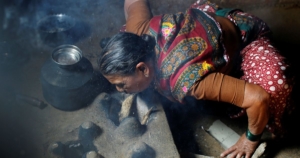4 Innovative Clean Fuel Solutions
Today, 40 percent of the world lacks access to clean fuels and technologies for cooking. As a result, traditional wood, charcoal and kerosene fuels cause indoor air pollution claiming around 1.5 million lives per year. Fortunately, a number of organizations are taking up the mantle to introduce clean fuel solutions for the world’s poor. Keep reading to learn more about these top innovative clean fuel solutions.
4 Innovative Clean Fuel Solutions
- KOKO: KOKO is a small portable stove that uses bioethanol. The business model relies on mobile banking which enables users to buy a KOKO and clean fuel by paying for it in installments. KOKO partners with fuel majors so its model requires significantly lower upfront capital expenditures compared to other clean cooking fuels. As a result of its decentralized sales points and mobile/cloud technology, its model delivers bioethanol fuel closer to customers. When taking imported ethanol and taxes into account, it is also the cheaper option at 85 cents per liter.
- BBOXX: BBOXX is similar to KOKO in that it uses mobile technology and installment payments. BBOXX engages in the same process as KOKO but also has BBOXX Pulse. The BBOXX Pulse device collects data and insights letting the company provide its services to previously unreachable populations. BBOXX also detects when fuel is depleted letting the user know the fuel cost and replenishing the fuel supply. It currently operates in 12 countries and has been sold in more than 35. BBOXX received a $15 million investment from a number of companies most recently Oikocredit. With this investment, the company experienced a rapid scale-up of its business model allowing BBOXX to reach key regions in Rwanda and Kenya.
- Biogas device – Omer Badokhon: Omer Badokhon invented a small-scale biogas system that converts waste into clean fuel. The device is created from plastic or fiberglass and works by using specially designed fermenting chambers. This device then takes food scraps and converts them into biogas. Badokhon won the “Young Champions of the Earth” award from the U.N. Environment Programme and is building the first group of units with the prize money. The units have been piloted in 1,500 rural homes in Shabwa, Sanaa, Hadramout, Ibb, Taiz and Aden. Badokhon also received $10,000 from the Yemeni oil company PetroMasila to complete his research. Not only does the biogas device create clean fuel, reducing pollution, respiratory illness and death, but it also has the potential to reduce cholera rates. By recycling, waste should not be as big of a problem as it is a major contributor to cholera.
- HomeBioGas: Another clean fuel solution is HomeBioGas. HomeBioGas is an invention that uses bacteria rather than electricity, naturally breaking down organic matter to turn it into either cooking gas or fertilizer. HomeBioGas performs bacterial anaerobic digestion of organic waste, for example, food scraps or animal manure. It also has two filters, a bio-filter that reduces odors as well as a chlorine filter that eliminates pathogens. The device itself is an easy-to-assemble kit, making it a perfect fit for villages in places like Palestine and Uganda. There are an estimated 70 different countries that are interested in having their own HomeBioGas devices and are willing to distribute them throughout their respective countries. An Indiegogo campaign raised 200 percent of the company’s $100,000 target, thus it is now launching globally.
– Nyssa Jordan
Photo: Flickr

